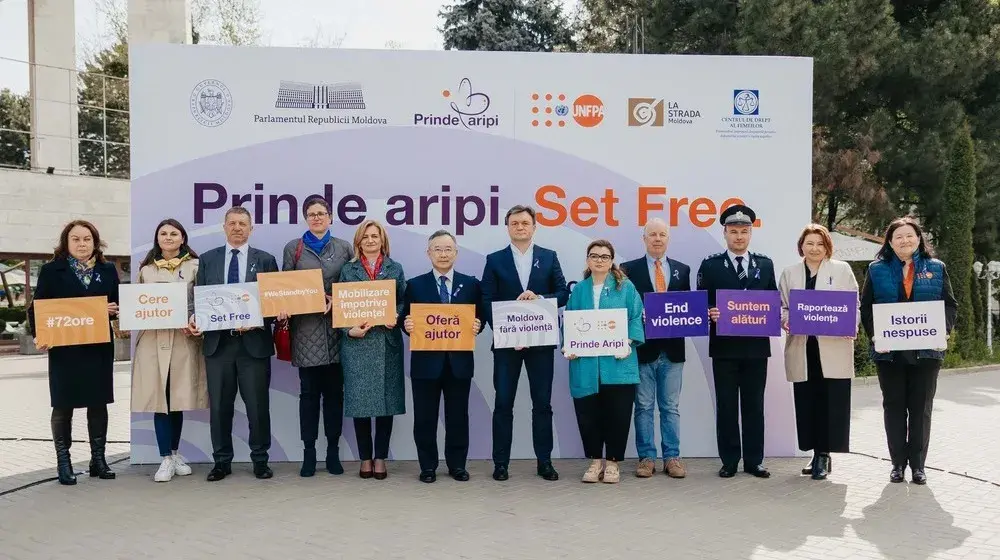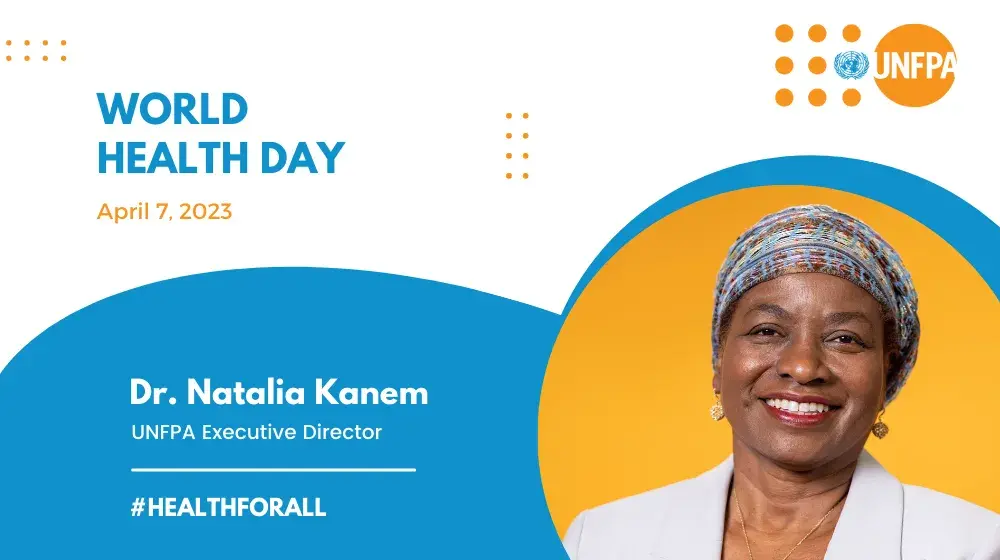The Parliamentary Commission for social protection, health and family of the Republic of Moldova and UNFPA organized a “What’s Changed” conversation in the Parliament to reflect on the successes and gaps in the realization of the Cairo Programme of Action of the International Conference on Population and Development which took place 25 years ago. The national consultations engaged more than 70 participants from government, parliament, civil society, international organizations, academia and young people.
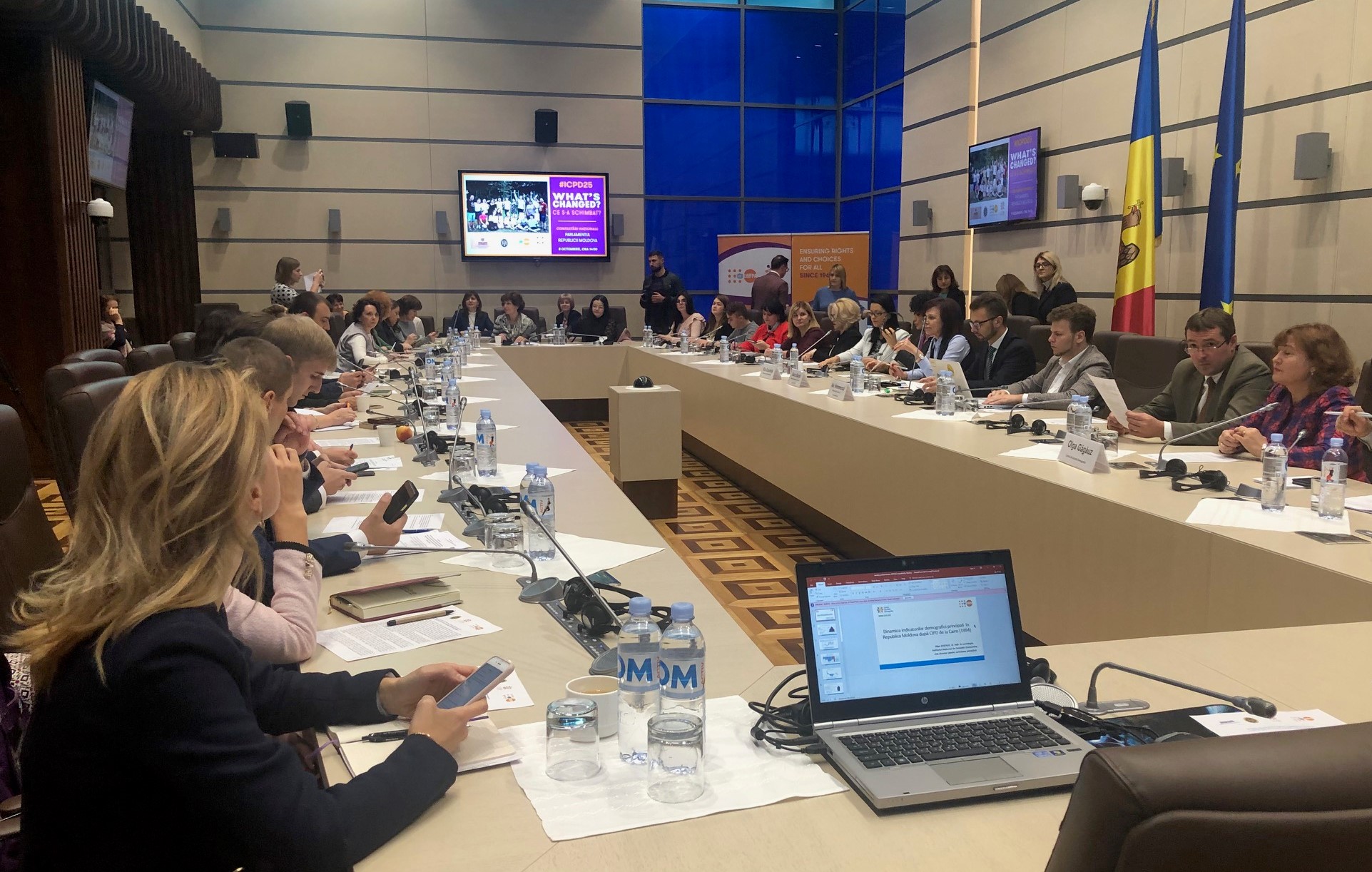
In the opening of the event, Rita Columbia, UNFPA Representative, acknowledged the progress of the country. “Today, a woman is far less likely to die during pregnancy and child birth, individuals and couple have access to modern contraception, which enables them to make the right choices about their lives. We also see that gender equality is advancing and young people have more opportunities for development and well-being,” she said.
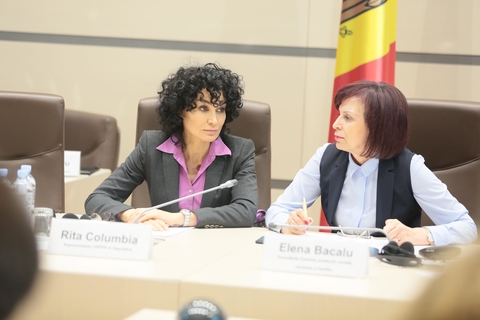
Olga Gagauz, Director of the National Demographic Research Centre, presented the demographic trends of the country, emphasizing that Moldova has faced low birth rates and high levels of outmigration, which led to population decline and ageing.
According to official statistics, the country has registered a number of 2,68 million people in 2018. The total fertility rate is 1,8 - below the replacement level, while the life expectancy is much lower, both for women and men, compared to more developed European countries.
Emigration of the population, especially of young people, is an alarming trend and the share of ageing population has increased from 13% in 1994 to 20% in 2019.
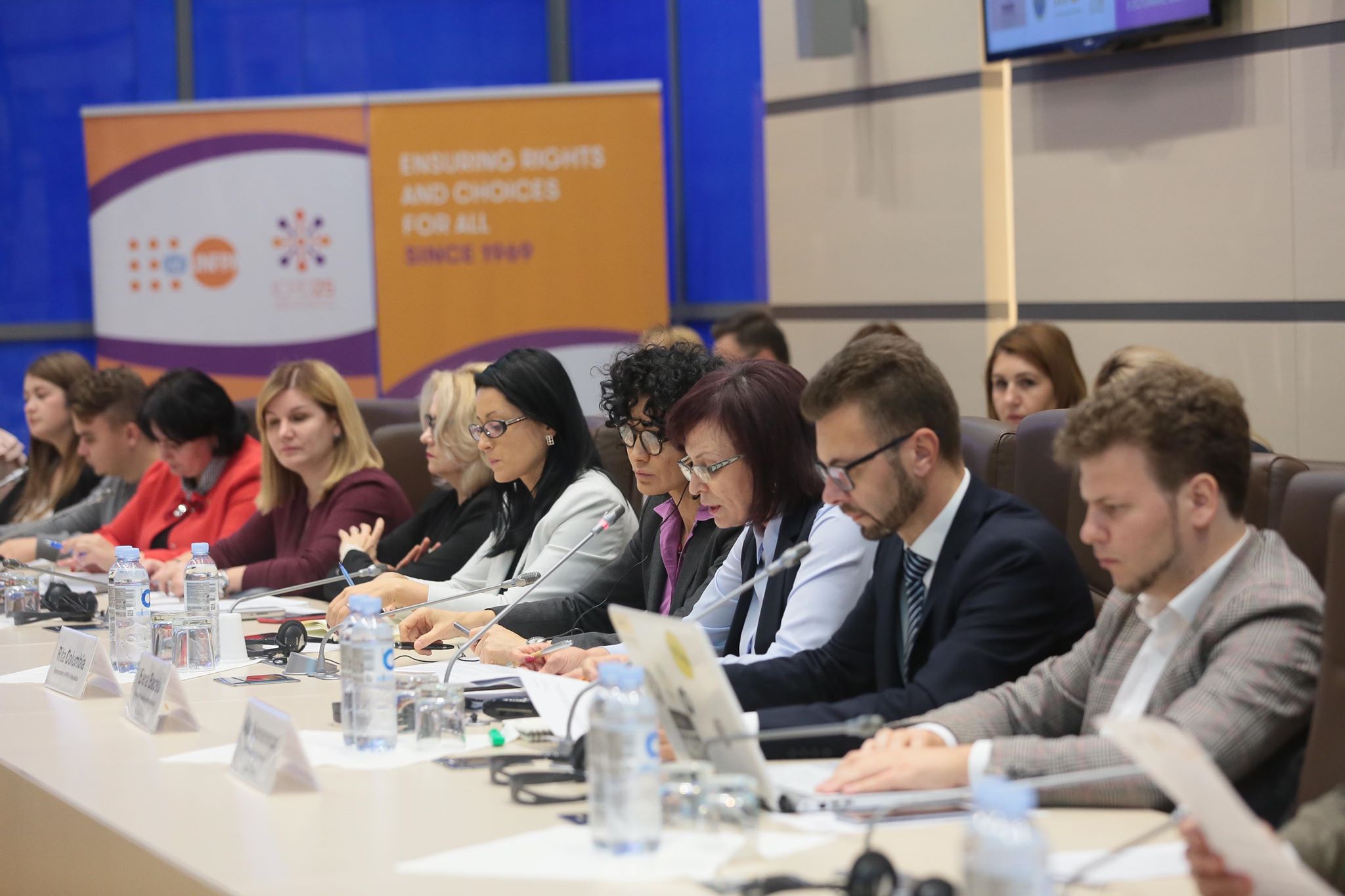
The participants in the consultations identified a range of strategies for addressing demographic changes.
These included better integration of women and older people in the labour market, and investments in the education and health of people throughout the entire life-course. They stressed the importance of investing in young people, especially in their civic engagement, economic opportunities and education for healthy behaviours.
“We need to invest in the human capital, it is not so much population numbers that matter for a productive and prosperous society. What matters, ultimately, are the health, skills and abilities of people. On long term, this may be more stable, than a large population in which the numerical replacement of generations is ensured, but without increasing productivity”, Olga Gagauz concluded.
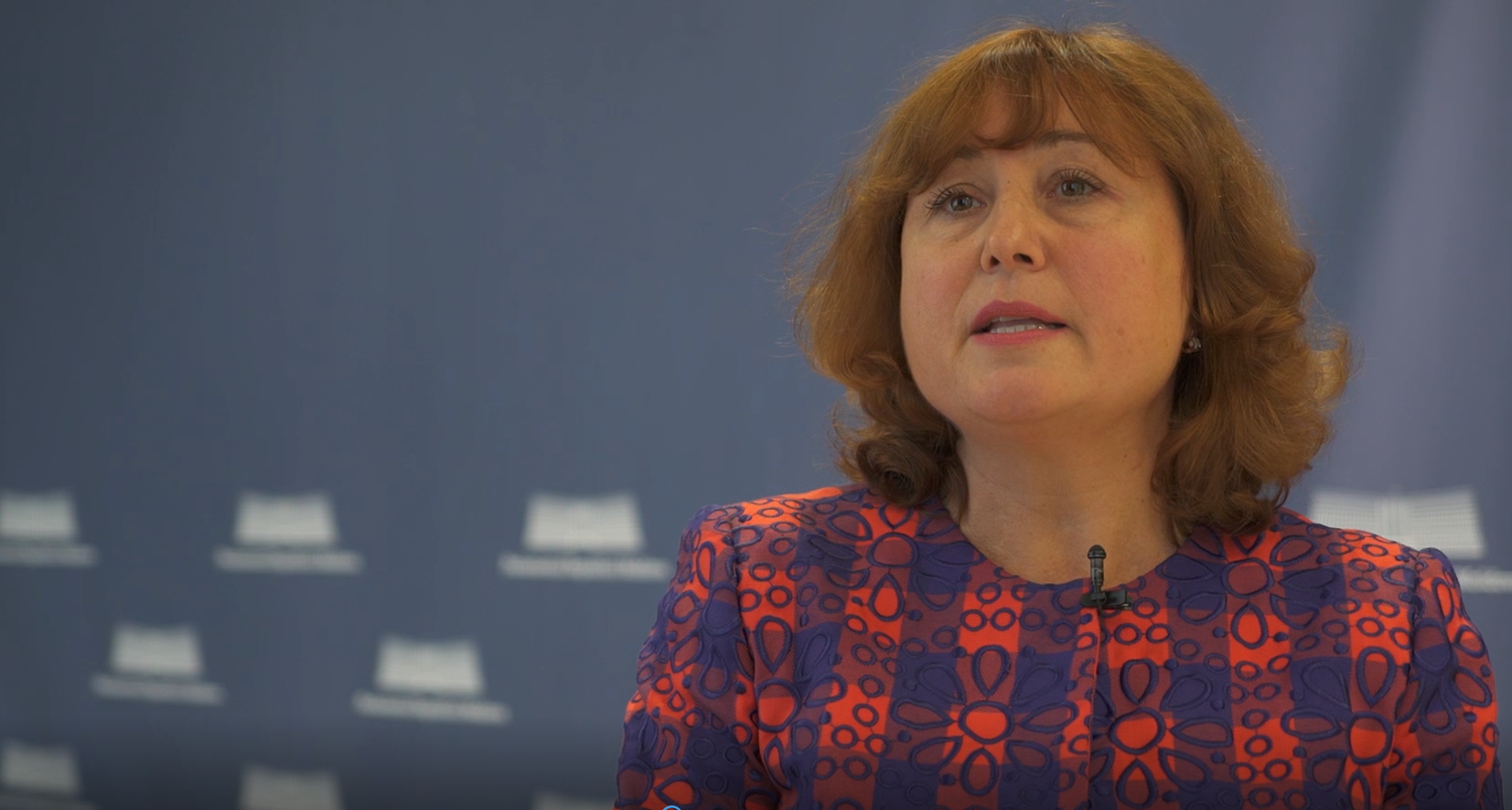
The recommendations in the Parliament resonated with the voices of young people of Moldova, who were consulted earlier this year within a Summer Camp session and pointed to the need for more opportunities for youth development and participation, especially at the local level, but also for the improvement of the educational system in regard to reproductive health and rights and addressing outmigration.
The national “What’s Changed” consultations in the Parliament of the Republic of Moldova is a part of series of events leading up to the Nairobi Summit on ICPD25 to be held on 12-14 November 2019.


